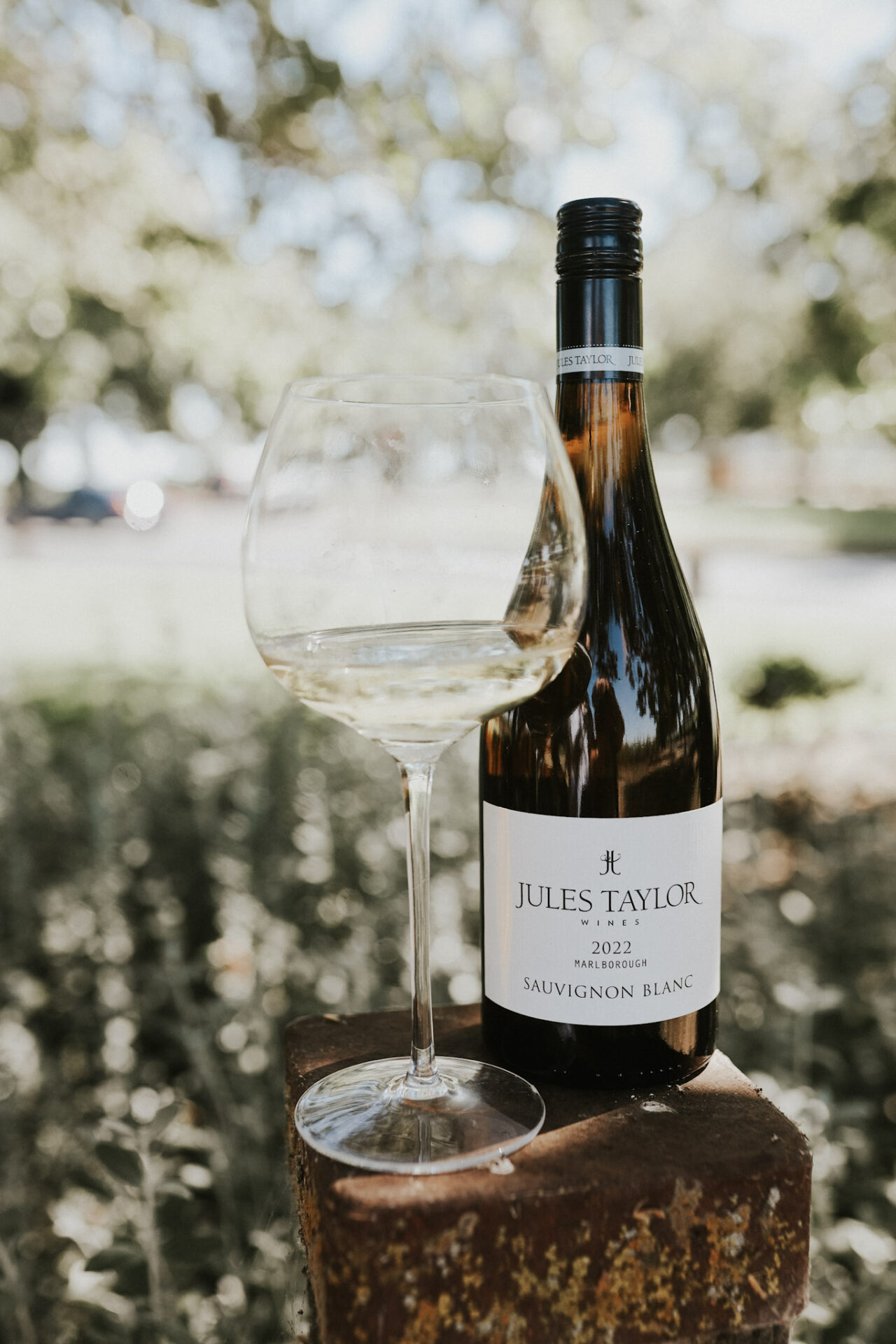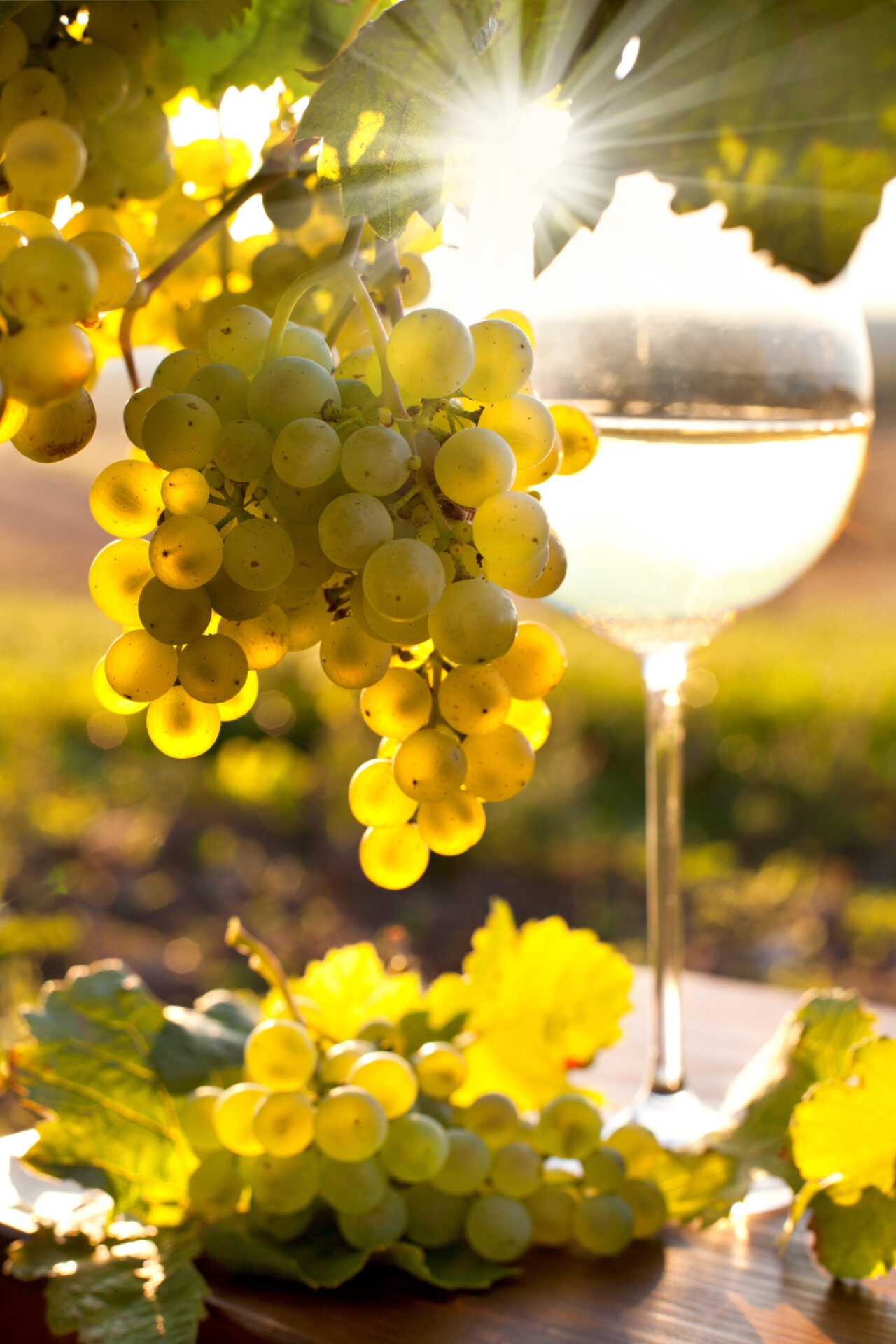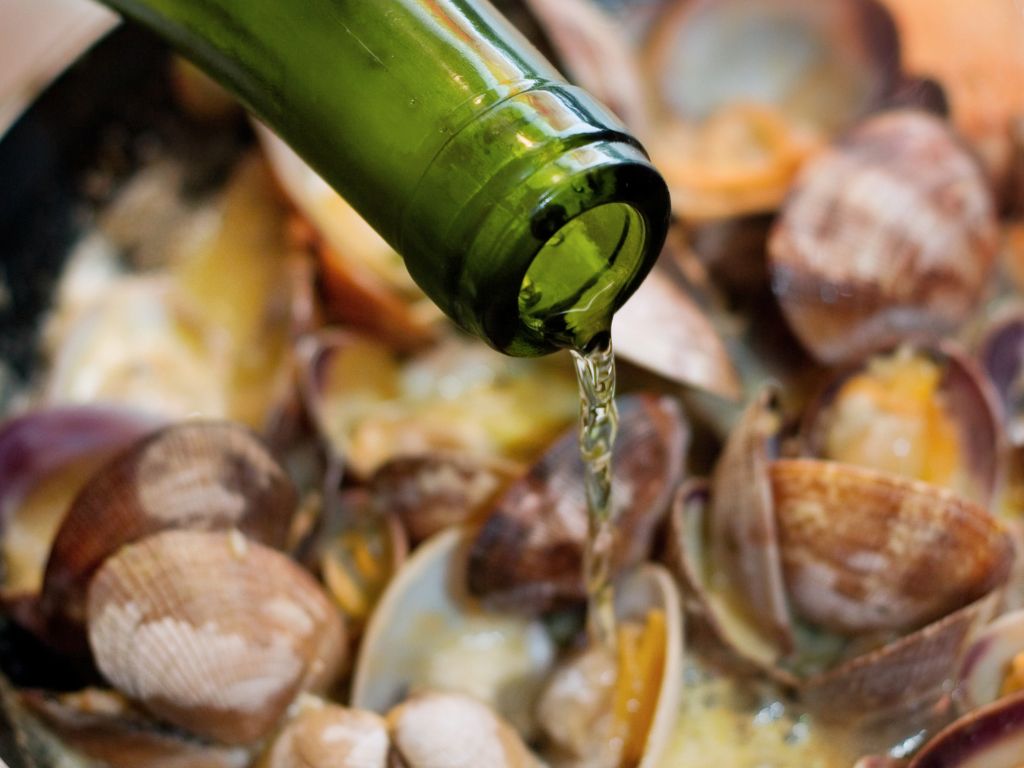
Greetings, wine aficionados and culinary connoisseurs! Today, we’re diving into the delightful realm of dry white wine—a treasure trove of flavors, aromas, and culinary possibilities.
Whether you’re a seasoned sommelier or a novice wine enthusiast, there’s always something exciting to discover in the world of dry white wines.

What is a Dry White Wine?
First things first, let’s demystify the term “dry” in the context of white wine. When we say a white wine is “dry,” we’re talking about its sugar content, or rather, the lack thereof.
Dry white wines have minimal to no residual sugar, which means they aren’t sweet on the palate. Instead, they offer a crisp, refreshing, and often acidic taste that makes them perfect for a wide range of culinary adventures.
Typically, any wine is categorized as “dry” if it contains less than 1% sweetness (equivalent to less than 10 grams of residual sugar per liter). White wines, based on their sweetness levels, can be grouped as follows:
Dry: Containing less than 1% residual sugar.
Off-dry or semi-sweet: With over 3% residual sugar.
Sweet wine: Having more than 5% residual sugar.
Dessert wine: Falling in the range of 7% to 9% residual sugar.
So, what distinguishes dry wine from sweet red wine? Sweet white wines have a higher level of residual sugar, resulting in a sweet taste.
It’s important to note that when you’re just beginning to get into wine, people often mistake fruit-forward wines for sweet, however, fruit is a taste note a sugar level.

Variety Abounds: Dry White Wine Types and Grape Varieties
One of the beauties of the wine world is its diversity, and dry white wine is no exception. These wines can be crafted from various white grape varieties, each contributing its own unique character.
Here are some popular dry white wine varieties:
Chardonnay
If you enjoy a full-bodied, buttery, and often oaked white wine, Chardonnay is your grape. The oaked Chardonnays offer notes of vanilla and caramel alongside citrus and stone fruit flavors.
Read more: Chardonnay 101
Sauvignon Blanc
Sauvignon Blanc is the poster child for highly acidic and zesty dry white wines. Its aromas range from grassy to tropical, and it pairs wonderfully with seafood.
Read more: Sauvignon Blanc 101
Chenin Blanc
Known for its versatility, Chenin Blanc can produce both dry and slightly sweet wines. Dry Chenin Blanc often features green apple, pear, and floral notes.
Pinot Grigio/Pinot Gris
This grape variety goes by different names but consistently delivers a crisp, light, and refreshing profile with citrus and apple flavors.
Read more: Pinot Grigio 101
The Loire Valley: Dry White Wine Elegance
When it comes to dry white wines, the Loire Valley in France deserves a special mention.
This picturesque region is renowned for producing some of the world’s most elegant and highly acidic whites. Chenin Blanc shines here, creating wines that range from bone dry to slightly sweet, with an array of flavors from green apple to honeyed stone fruit.
The Loire Valley’s Sancerre, made from Sauvignon Blanc, is another star, celebrated for its vibrant acidity and citrusy charm.

Dry White Wines for Cooking: From the Vineyard to the Kitchen
Now that we’ve explored what makes these wines so delightful to sip, let’s talk about their culinary prowess.
Dry white wines have a rightful place in the kitchen, where they play a vital role in enhancing flavors, deglazing pans, and creating delectable sauces. Just be sure to never cook with a wine you wouldn’t drink! It truly makes all the difference.
Here are a few tips to keep in mind and popular choices for cooking with dry white wines:
Look for Highly Acidic Wines
Dry white wines with high acidity, such as Sauvignon Blanc, are excellent for deglazing pans when making dishes like chicken piccata or shrimp scampi. The acidity cuts through rich flavors and adds brightness to the sauce.
Related: Best Sauvignon Blanc Wines for Every Budget
If Making Beurre Blanc…
The classic French butter sauce, beurre blanc, often calls for a dry white wine like Chardonnay. The wine’s complexity and acidity provide a balanced foundation for this luxurious sauce.
Related: Best Chardonnay wines for every budget
For Cream Sauces
When preparing cream-based sauces, reach for an oaked Chardonnay. The wine’s buttery notes complement the creamy texture and create a harmonious pairing.
When Cooking Seafood
Dry white wines, especially those from the Loire Valley, are perfect for seafood dishes like mussels in white wine sauce. Their crispness accentuates the briny flavors of the sea.
Think of Wine as Flavor Enhancers
White wines can enhance the flavors of risotto, pasta dishes, and vegetable stir-fries. A splash of Pinot Grigio or Chenin Blanc can elevate these recipes to gourmet status.
Think about the flavors in the wine and what they’ll add to a dish, just like a spice. Wine will impart fruit flavors such as lemon and citrus, and sometimes notes of cinnamon or vanilla, depending on the bottle.

Dry White Wine Food Pairing Perfection
Beyond the kitchen, these wines offer a world of pairing possibilities. Whether you’re indulging in a leisurely brunch, a fancy dinner, or a casual picnic, there’s a dry white wine to complement your culinary choices.
Brunch Bliss
Start your day with eggs benedict or a spinach and feta omelet paired with a crisp Sauvignon Blanc. The wine’s herbal and citrus notes dance harmoniously with your morning fare.
Alternatively, you could craft a delicious mimosa. Here’s our guide to the best Prosecco for Mimosas.
Seafood Sensations
For a seafood feast, consider a dry Chenin Blanc from the Loire Valley. Its vibrant acidity and fruity profile are a match made in culinary heaven for dishes like grilled shrimp or lobster.
Sauvignon Blanc, with its acidity, is the perfect wine for cutting through the delicious richness of Alaskan snow crab.
Picnic Pleasures
When packing your picnic basket, don’t forget a bottle of Pinot Grigio or Pinot Gris. These wines are picnic-perfect, offering refreshing sips to accompany sandwiches, salads, and fresh fruit.
Check out our guide to crafting cute charcuterie boxes for your next picnic!
Cheese & Charcuterie
If you’re creating a cheese and charcuterie board, opt for a lightly oaked Chardonnay. Its creamy texture and subtle oak notes complement a variety of cheeses, from brie to gouda.

Wine and Wisdom: A Dry White Wine’s Versatility
White wines aren’t just a delightful sip; they’re a versatile ally in the world of wine and culinary arts.
Whether you’re uncorking a bottle to elevate your favorite recipe or savoring a glass alongside a carefully crafted meal, dry white wines have a knack for enhancing flavors, brightening palates, and making every culinary adventure a memorable one.
Cheers to your wine adventures!
